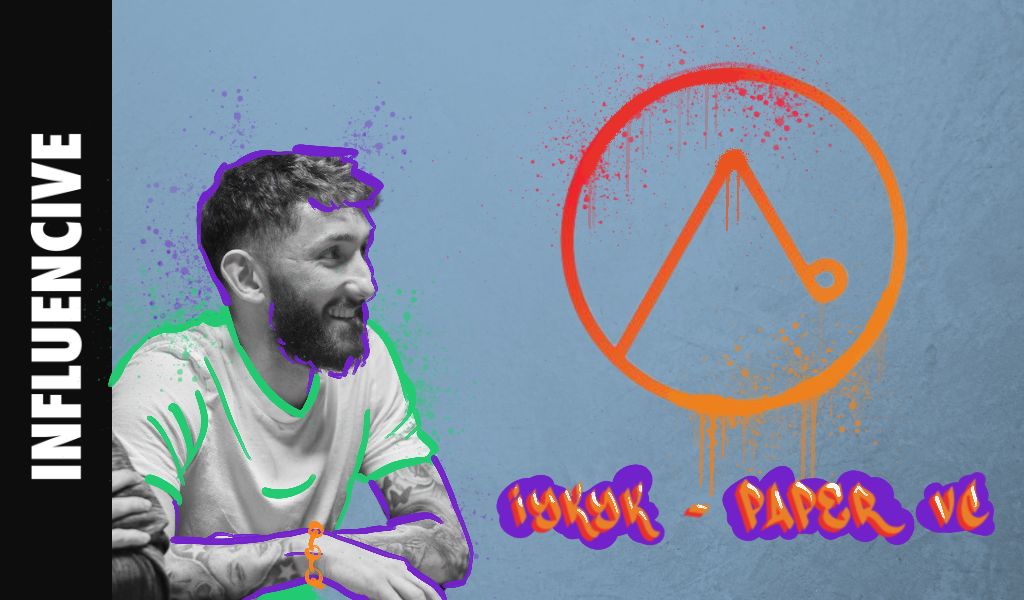We spoke with Oliver Blakey from Paper Ventures to get some insight on the web3 venture capital scene and his latest endeavor. Paper VC has launched a $25M venture capital fund for blockchain startups and they pledge to leverage its founders’ broad industry experience and networks to provide resources for success.
Expelled from school at 15 for Gambling, Oliver’s degen ways were solidified at an early age. With 10 years experience as a professional poker player, his transition to crypto just made sense. It all started when some online games started paying out in Bitcoin. Web3 and gambling are synonymous, and Oliver saw the abundant opportunities available in the decentralized world.
During the ICO boom, he saw the VC world had an edge, so he created his first fund, Ascensive Assets, in 2019. Web3 is gambling driven, and that is a world he knows well. Ascensive grew to a $1.2 Billion dollar fund and targets larger ticket projects. But these are late stage investments, and Oliver needed a little more excitement. With a preference for pre seed funding rounds with higher risk and thus, higher reward, Oliver spoke with his partners, Danish Chaudhry and Ivailo Jordanov, and they created Paper VC. “Being woke up at two in the morning by founders because something’s gone wrong was just something that actually keeps my brain moving,” Oliver said. Paper VC is a back to basics, higher risk investing strategy that aims to be first in getting the best deals.
They’ve funded a few projects already including Renzo Protocol and Forgotten Playland. They’ve also recently announced they funded a crypto casino called Monkey Tilt Play to which Oliver said, “I’ll be very surprised if they’re not the industry leader in a very short period of time.”
When asked how their firm handles due diligence, Oliver said they focus on the exit strategy first. A Lot of VCs focus on PR, followers, and attention. Oliver is not out for fame and likes, but simply smart money. They do not subscribe to a specific niche for their fund, but rather prefer to follow where the liquidity is moving in the industry, which he noted is currently Southeast and Mainland Asia.
With 100 plus investments across four funds, Oliver has learned that founder experience matters just as much as the product when it comes to investing. A very important part of due diligence is finding a founder that can successfully pitch their project. Thanks to his poker days, Oliver can get a solid read on a founder in a 10 min call. Being open to brainstorming and criticism is a must for a successful founder. Another important aspect of any project pitch according to Oliver is having a plan B. Projects should be flexible enough to pivot as they watch the competition and the market.
Projects should pay particular attention to money management. If they can’t explain where they have spent their investors funds, its a huge red flag. Proving responsible and effective capital management is a must for projects that are looking for additional funds. “Capital is oxygen,” according to Oliver, and investing in web3 is all about managing risk. Not having your financial prepared is one of the biggest mistakes founders can make.
So what makes a good pitch to a VC in web3? Oliver said, “Make things simple… if you can’t grab my eye and the length of a TikTok video, you’re basically dead in the water.” Founders need to be able to sell their product in 30 seconds. Its important to make everyone instantly understand why they need your product now, and this is often overlooked and replaced with tech heavy explanations. While a pitch deck is useful, they are often overlooked because founders can’t make the initial sell.
You can listen to the full interview podcast with Oliver Blakey and @howimetweb3
Follow PaperVC on X to learn more about them and the projects they are funding.
Opinions expressed here are opinions of the Author. Influencive does not endorse or review brands mentioned; does not and cannot investigate relationships with brands, products, and people mentioned and is up to the Author to disclose. Accounts and articles may be professional fee-based.

